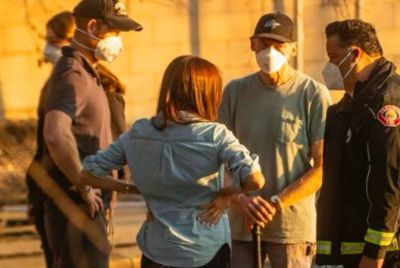Egypt presidential election candidates in first TV debate
Millions of Egyptians tuned in to watch the first presidential debate in recent history on TV between the two presidential candidates Abdel Fotouh, an Islamist who has won the backing of a broad range of voters ranging from liberals to hardline Salafi Islamists, and Amr Moussa. The former head of the Arab League and one-time foreign minister.
And the main subject will be how they would tackle the recent unrest led by ultra-orthodox Salafi Muslims in Cairo's Abbasiya district.
Moussa argued that in a state run by a president with a clear programme, Egyptians would not need to resort to such measures.
"I believe that as an elected president that does his job in a framework of his programme; and the people can witness this seriousness, I do not believe that Egypt would operate on the basis of such chaos. It might be that the situation of a transitional period in itself has a lot of tension as well as interventions and over-stepping that led to damage in the country. What happened in Abbasiya shouldn't have happened, especially that we are all in agreement.
While Fotouh said if he had been President then the clashes wouldn't have happened.
"I do not think that if I were president during that time that the Abbasiya clashes would have even happened. The Abbasiya events were poor performance from different sides. It is a must to stress that the right of peaceful demonstration and expression were one of the gains of the January 25th revolution."
Meanwhile, the man in the street Hassan Hassan, wasn't convinced by either of them.
"I'm not convinced with anything, I want to hear real answers, not sugar-coated ones. I want an administrative leader, a man who can run Egypt for the next five years, and who has the track record for it, a man who can run Egypt because he has done a thing or two in his past. But I'm not happy and I can't vote for either of them."
This debate could have help many voters make up their minds, although their every comment is likely to be closely scrutinised.
Written and Presented by Ann Salter






















